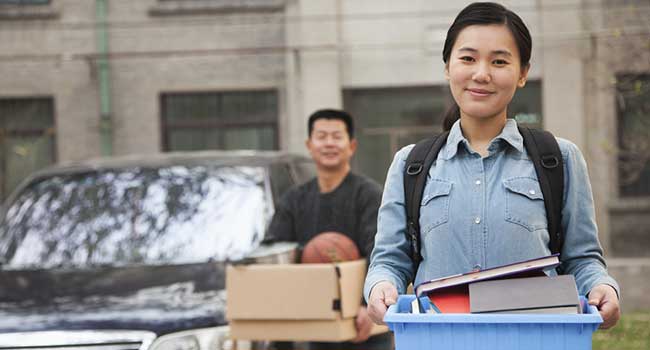
10 Questions Parents should Ask about Higher Education Security
Here are 10 questions parents should be asking when determining which school is best for their student.
- By Ralph C. Jensen
- September 17, 2018
Finding the proper college or university for your student is a difficult task, and finding the right protection methods is even more exhausting. By looking at a school’s annual security report, available on that school’s website, a parent can find crime statistics, disciplinary actions and campus safety policies. Here are 10 questions parents should be asking when determining which school is best for their student.
1. What is the college doing to cultivate a safe campus?
If parents and prospective students make campus safety a priority, it will require universities to raise their standards and make it a priority as well, experts say.
2. How does the school communicate with students in an emergency?
Schools may use different methods, such as emails, texts, and display signs on campus or sirens to alert students during an emergency. Ideally, universities should have a plan that allows them to alert students even when they’re out of cellphone or Internet range.
3. Are there police stationed on campus, or does the university rely on its own security team, with city or county police stations off campus?
Prospective students should know if campus safety is monitored by private security or police and how the security team coordinates with off-campus police when a crime occurs.
4. Who investigates an allegation of sexual assault or sexual harassment at the university?
"The goal is to know that the college would handle the investigation – period – and it’s important for them to know who the Title IX coordinator is and to whom a student could complain if a student had a concern," says Catherine Lhamon, assistant secretary for civil rights at the U.S. Department of Education.
Students should understand how schools handle reports made online or through campus abuse hotlines. Families should also know what procedures schools have in place to provide confidentiality for the accuser and ensure the victim and the rest of the student body are safe, legal experts say.
5. Whattraining does the disciplinary board receive about how to conduct a sexual assault investigation?
Online training can be a faster and easier way to meet the legal requirements for sexual violence training, but in-person training is preferable, experts say. Parents and students should expect their schools to offer training given by former sexual assault investigators such as sexual assault prosecutors and sexual assault unit detectives, he says.
6. What prevention programs do you have to educate students about safety?
Ideally, schools should offer bystander intervention– programs that teach students how to step in when they see another student in trouble – to students throughout their college career. A comprehensive program includes tips for risk reduction and prevention strategies, and suggestions for how bystanders can intervene and remain safe. Support from campus leaders and administrators are necessary for prevention programs to be effective and successfully influence the campus culture.
7. How do you protect students who live off campus?
If there is a chance that a prospective student won’t live on campus all four years, families should ask schools if they offer students help finding safe, reliable off-campus housing.
8. Is there an on-demand transportation service frequently used by students?
Some schools have stand-alone programs, agreements with local taxi services or expect students to rely on local transportation, such as a city bus or subway system, if they're out late or leave the campus for community activities. Students should know the service's operating hours and how far outside campus it picks up students.
9. Is alcohol and drug abuse a significant issue on campus? How do you handle violations?
Violation statistics can be found in the annual security report, but prospective students should understand campus policies for alcohol and drug use and how violations are handled. It is also worthwhile to find out if the school has programs to help students who abuse alcohol or prescription or recreational drugs.
10. How will youprotect students during a natural disaster?
Crime and alcohol and drug abuse are obvious safety hazards, but families should also consider how schools prepare for natural disasters. Schools should explain how they coordinate with local authorities, such as the police and fire department, what evacuation plans are in place and how often their systems and safety plans are tested, security experts say.
About the Author
Ralph C. Jensen is the Publisher/Editor in chief of Campus Security Today.